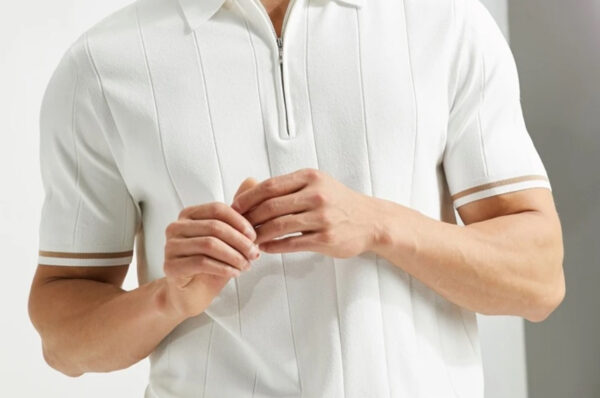
In the world of men’s fashion, the quest for uniqueness and style often leads us to explore different designs, patterns, and fabrics. Among the myriad options available, chikankaari shirts have emerged as a captivating choice for those seeking a blend of elegance, tradition, and contemporary fashion. Originating from the rich cultural heritage of Lucknow, India, chikankaari shirts have gained popularity worldwide for their intricate embroidery, delicate craftsmanship, and the sheer beauty they bring to men’s fashion. In this blog, we’ll delve deeper into the world of chikankaari shirts and discover why they have become a coveted addition to any discerning gentleman’s wardrobe.
The Art of Chikankaari:
Chikankaari, which translates to “embroidery of the soul,” is an age-old traditional embroidery technique that has been passed down through generations. It involves delicate hand-stitching using white cotton threads on fine muslin fabric. Originally practiced by skilled artisans in Lucknow, chikankaari has evolved over time, incorporating various stitches and designs inspired by nature, Mughal architecture, and Persian motifs. The intricate patterns, floral motifs, and the sheer intricacy of chikankaari embroidery make these shirts a visual delight, reflecting the rich heritage and craftsmanship of the region.
Elegance Redefined:
Chikankaari shirts for men exude a timeless elegance that is hard to match. The combination of the lightweight muslin fabric and the delicate embroidery creates a unique texture and visual appeal. The intricate patterns, ranging from floral vines to geometric motifs, lend a touch of sophistication and refinement to the overall design. The subtle and understated nature of chikankaari embroidery makes it versatile and suitable for both formal and casual occasions. Whether paired with trousers, jeans, or traditional ethnic wear, chikankaari shirts effortlessly elevate any ensemble, making a powerful style statement.
Craftsmanship and Sustainability:
One of the most significant aspects of chikankaari shirts is the craftsmanship involved in their creation. Skilled artisans spend countless hours meticulously embroidering each garment, resulting in a piece of art that carries with it a sense of tradition and heritage. The handcrafted nature of chikankaari ensures that each shirt is unique, reflecting the dedication and creativity of the artisans. Furthermore, the use of natural fabrics, such as muslin, and the absence of synthetic materials contribute to the sustainability of chikankaari shirts, making them an eco-friendly choice for conscious consumers.
Modern Interpretations:
While chikankaari shirts have deep roots in tradition, contemporary designers have embraced this art form and incorporated it into modern fashion sensibilities. Today, you can find chikankaari shirts in a variety of colors, cuts, and styles, catering to diverse fashion preferences. From classic white shirts with subtle embroidery to bold hues with contrasting threadwork, the choices are endless. This fusion of tradition and modernity allows men to embrace their individuality and express their style through chikankaari shirts.
The Legacy Lives On:
The popularity of chikankaari shirts has transcended borders, with men from different cultures and backgrounds embracing this exquisite art form. Whether worn at weddings, formal events, or simply as a statement piece, chikankaari shirts continue to captivate with their timeless charm and intricate detailing. By owning a chikankaari shirt, men not only acquire a unique fashion item but also contribute to the preservation of a centuries-old craft.
Chikankaari shirts for men beautifully blend tradition, craftsmanship, and contemporary fashion. Their intricate embroidery, delicate patterns, and elegance make them a versatile and timeless addition to any wardrobe. By donning a chikankaari




